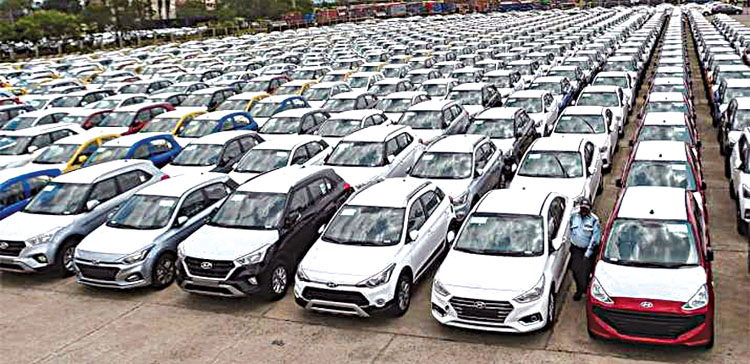Mumbai, May 25 (Agency) The second COVID-19 wave will have a significant impact on the asset quality of vehicle financiers due to their borrowers’ reduced capacity utilisation, higher operating costs, and moderating cash flows, says a report. According to India Ratings and Research, these lenders’ collection efficiency for the first fortnight of May could be lower by 5-7 per cent on top of a similar decline in April over March 2021. “Lenders (vehicle financiers) would be impacted in the medium term due to restricted mobility and moderating borrowers’ cash flows. Collections have become difficult due to the surge in infected cases and would impact asset quality in H1 FY22,” the agency said in a report.
It said the impact of the first COVID wave was cushioned with multiple measures such as regulatory moratorium, loan restructuring, additional funding through the emergency credit line guarantee scheme. Also, a sharp pent-up demand recovery raised optimism about faster-than-expected normalisation. However, the outcome may be different during the second wave, due to the wide-scale impact, including rural areas and pent-up demand being absorbed already, it added. With reduced borrowers’ savings and rising operating costs due to fuel inflation, the excess capacity had its offsetting impact on freight contract renewals or market freight rates, all impacting borrowers’ cash flows, the agency noted.
Early demand indicators, such as the E-way bill, diesel consumption are showing signs of moderation and asset inflation (rising raw material prices like steel and cement) would impact demand offtake and thus load availability. Thus, both demand and rising operating costs would moderate borrowers’ cash flows in the financial year 2021-22, it said. “Lenders’ collection efficiency would also be affected by restricted mobility as the second wave has spread across all geographies, the agency said, adding it has a negative outlook on commercial vehicle finance as an asset class.
It said there are emerging trends of rising loan tenures across vehicle financiers to reduce servicing burden for borrowers, however, these could lead to a rise in loss given defaults for collaterals. The agency, however, said lenders have shored up their capital and liquidity buffers to navigate the challenging environment. The strengthened capitalisation, and sizable on-balance sheet liquidity, and holding of margin due to a funding cost improvement in the last year would provide some buffer to absorb incremental stress because of the second wave, it said.

